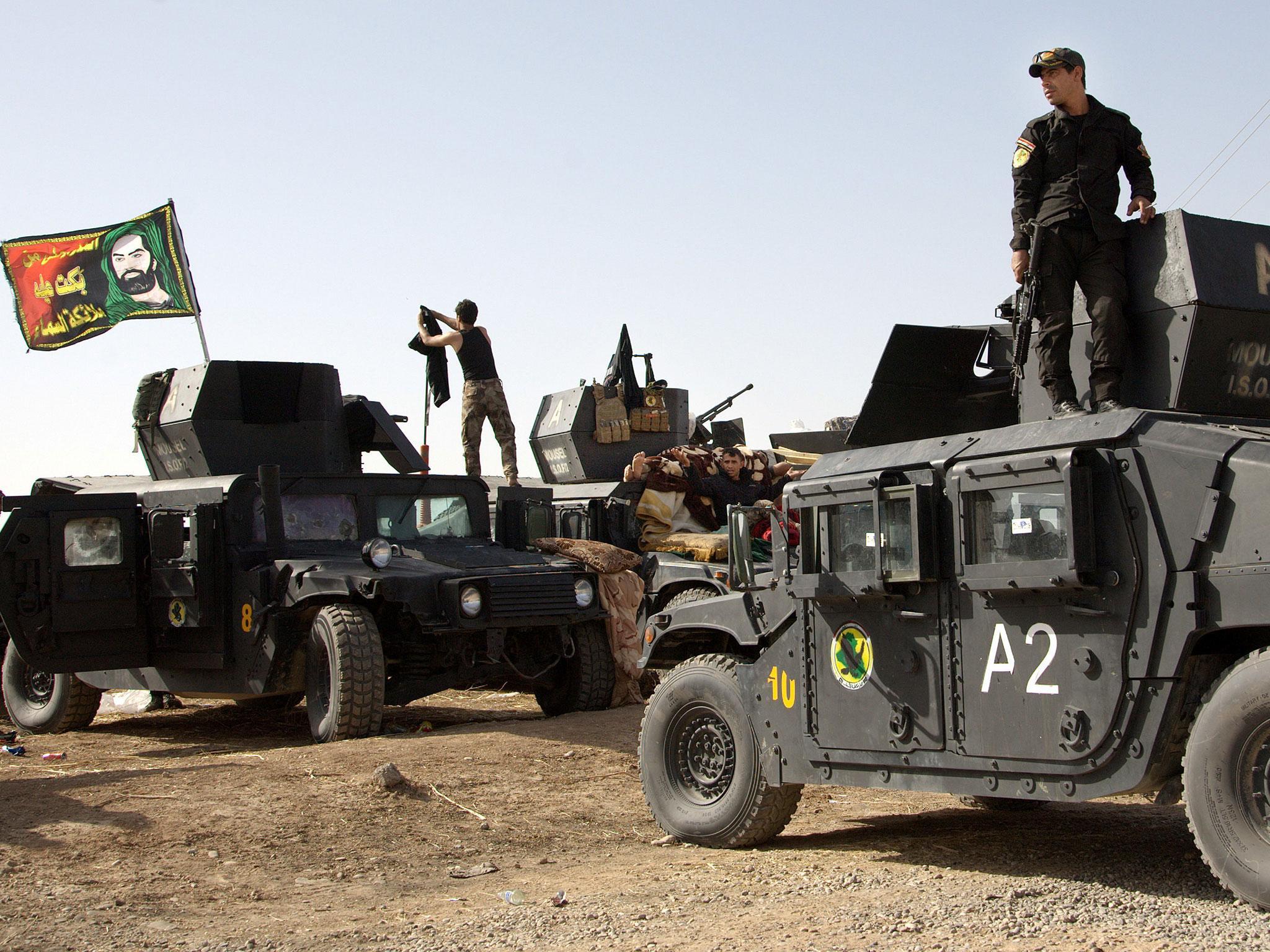After Isis, the future of Mosul will be decided by sectarian forces
Once again, no cohesivec plans are in place for power sharing between different communities – something the city will badly need after the jihadis are driven out

The assault on Mosul has been telegraphed well in advance and has now commenced broadly on the date that politicians and military commanders in countries involved in the operation have been publicly talking about.
This is relevant because it shows that the need to surprise the enemy was not a factor of paramount importance. Isis had been well aware that, after the recapture of Tikrit, Ramadi and Fallujah from their shrinking caliphate, Mosul, Iraq’s second largest city and the loss of which was such a humiliation for the Baghdad government, would be the next target.
The most Isis can do at this stage is to try to inflict as much damage on the approaching forces as possible. It may be the case that its fighters try to flee, if they can. Either way, whether it takes weeks or is all over in days, Mosul will be seized back. The size of the Iraqi and Peshmerga forces them, and the Western fire-power on the ground and air, will prove too much for Isis.

But the real problem for this mission will start when that happens. The reason Isis was able to make such a rapid advance in the west and north of Iraq was because it exploited the anger and resentment felt by the Sunni population at their treatment in the hands of the Shia-dominated government of Nour al-Maliki.
The US and Britain, responsible for the disastrous invasion of Iraq, continued to support Mr Maliki after the end of the subsequent occupation. Washington and London could be charged with being oblivious to the divisive sectarian policies being carried out by the government it sponsored, or knowing and not foreseeing what this may bring.
These bitter sectarian scars have not healed, and that is where the danger lies with Mosul. Shia militias were accused of killings, abductions and lootings by Sunni communities in Ramadi and Fallujah after these cities were retaken. And, indeed, it is with this mind that the initial attack on Mosul will be carried out by a Western trained Iraqi counterterrorism force with the Shia fighters, some with Iranian links, supposedly keeping to the outskirts of the city.
But such demarcations easily blur in the violent confusion of an urban battlespace and it is unlikely the Shia militias will be far behind in entering the city. Kurdish Peshmarga forces will also be present and these two groups have already clashed in the nearby province of Diyala. The Turks, who are training a Sunni force in Bashiqa also want a say in what happens in Mosul, with Turkey's President Erdogan declaring “no one can prevent us from participating”.
Mr Maliki’s successor, Haider al-Abadi, has run a more inclusive administration, bu the recruitment of the Shia fighters in Popular Mobilisation Units, blamed for mistreatment of Sunnis, has continued. Meanwhile, no cohesive and realistic plans are in place for power-sharing between different communities – something Mosul will badly need after Isis is driven out.
These pitfalls have led to warnings from many quarters that this operation is taking place too soon. Mr Abadi’s government, however, is adamant that it should take place now, and Western commanders agreed that momentum of action against Isis needed to be maintained.
Mosul’s million residents are being told not to flee their homes as the allied advance takes place. This is not just to avoid the chance of them getting caught in crossfire or creating a further internal refugee crisis: abandoned homes can be taken over more easily in a sectarian land grab. Nevertheless around $2bn (£1.6bn) has been set aside for humanitarian supplies and emergency accommodation by Western states, the Iraqi government and the UN.
The launching of the military offensive may turn out to be the easiest part of the Mosul mission. What unfolds in the coming days and weeks will play a decisive part in whether sectarian strife is defused or inflamed in Iraq and the wider region.
Join our commenting forum
Join thought-provoking conversations, follow other Independent readers and see their replies
Comments
Bookmark popover
Removed from bookmarks